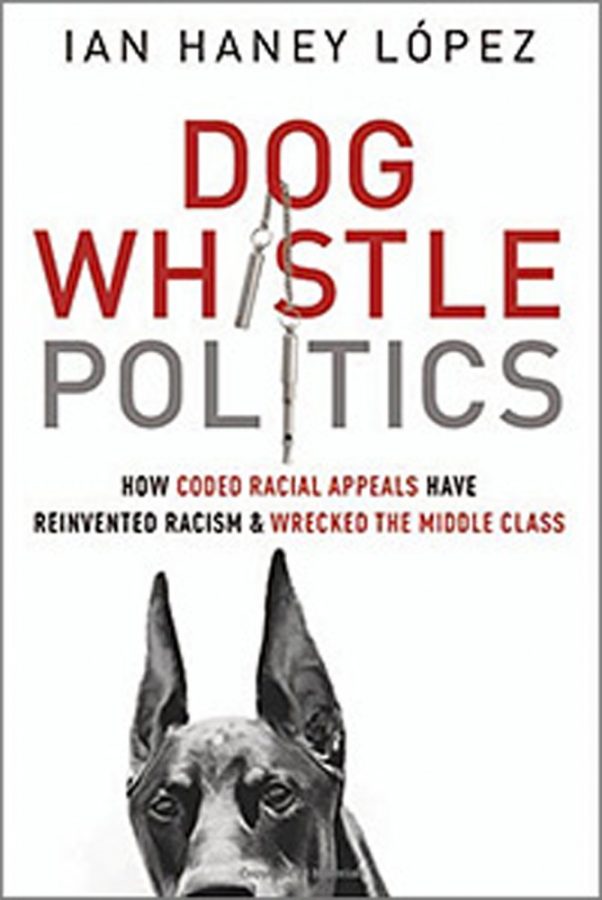Consider the terms “welfare queen,” “gang banger,” “food-stamp president” and “illegal alien.” On the surface, these terms don’t explicitly state racial prejudice; however, according to Ian Haney López, author of the book “Dog Whistle Politics,” they’re all examples of coded racism.
As a constitutional law professor at UC Berkeley, Haney López is an expert in the evolution of racism since the Civil Rights era. Working to parallel the use of dog whistles to American politics, Haney López claims the use of coded words in American political rhetoric ultimately works to pit voters against each other.
“If you think about a dog whistle literally, it’s a whistle that works on such a high frequency that [a] human ear can’t hear it,” Haney López said. “It’s a metaphor that aims to get us to appreciate how a lot of political speeches operate on two registers: On one register, we’re silent about race, but on the other register, we’re triggering strong racial anxieties.”
The political tactic of dog whistling, said Haney López, is the mechanism by which politicians seduce middle-class citizens to vote against their better interests.
“Coded speech is used excessively and pervasively by politicians — especially, but not exclusively, by the Republicans,” Haney López said. “This is racism used as a strategy. By stirring up racial animosity, politicians are able to better achieve their desired votes.”
In cooperation with the Tucson Festival of Books, Haney López will host a panel addressing dog whistle politics Saturday at 1 p.m.
“Tucson Festival of Books volunteers work throughout the year to recruit authors who will inform and inspire festival attendees,” said Terry Holpert, a festival volunteer. “With current events authors, we strive to offer voices who provide thought-provoking and critical perspectives on important issues. We invited Ian Haney López because he is one of the leading academics and public intellectuals to explore issues of race, politics and income inequality. As you know, those are critical issues facing our country and are particularly important in Arizona.”
Haney López will not only address the issue of reinvented race, but also the destruction of the American middle class.
“I think most people walking into a panel on race will think the conversation is going to be exclusively about communities of color,” Haney López said. “While that’s partly it, the principle argument deals with the sort of politics being used to rock the middle class, which includes whites and nonwhites alike.”
Haney López argues coded racism and other sorts of cultural provocation, such as abortion, gender, same-sex marriage and guns, have been used to organize politics that reach beyond the court.
“As a constitutional law scholar, I’ve been deeply engaged in the happenings of the Supreme Court for the past several decades,” Haney López said. “I realized that the more you look at the Supreme Court, the more you begin to recognize the holes in the system. The rhetoric and logic of the system doesn’t fully address what’s actually happening. Though I initially started researching this topic because of my interests in the courts, as time progressed, I realized that the nation is dealing with a very serious political issue here.”
Haney López’s current research delves into the connection between racial divisions in society and growing wealth inequalities nationwide. He attributes much of the nation’s political dysfunction to the rhetoric of contemporary politics and the act of dog whistling.
“The first and most important thing to recognize when dealing with this issue is to recognize there’s something fundamentally wrong here,” Haney López said. “We need to say forcefully and repeatedly that … this drum banging will not stand. We’re talking about a set of ideas, a set of divisions and a set of anxieties that are being manipulated to make everyone worse off — nonwhites and whites alike. We’re all affected.”
_______________
Follow Elise McClain on Twitter.









